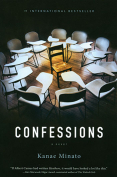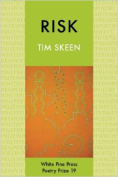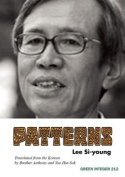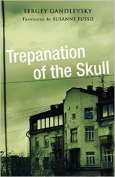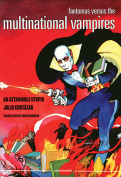Confessions by Minato Kanae
Stephen Snyder, tr. New York. Mulholland Books / Little, Brown. 2014. ISBN 9780316200929
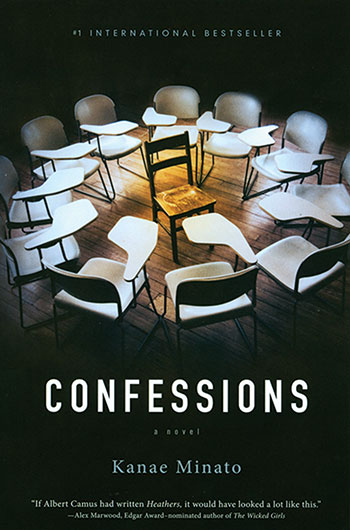 Confessions, the debut novel from Minato Kanae (b. 1973), is a sobering indictment of current Japanese society, told in a manner vaguely reminiscent of an epistolary novel through a variety of conceits: a resignation speech, a letter, a diary, a recurring nightmare, a blog, and a phone call. Comprising six “confessions” from five characters, the bleak picture Minato paints of people so deeply mired in their own self-absorption, so firmly invested in self-worth determined solely by the degree to which others notice them, leaves one despairing of a future for Japan’s youth other than total moral decay.
Confessions, the debut novel from Minato Kanae (b. 1973), is a sobering indictment of current Japanese society, told in a manner vaguely reminiscent of an epistolary novel through a variety of conceits: a resignation speech, a letter, a diary, a recurring nightmare, a blog, and a phone call. Comprising six “confessions” from five characters, the bleak picture Minato paints of people so deeply mired in their own self-absorption, so firmly invested in self-worth determined solely by the degree to which others notice them, leaves one despairing of a future for Japan’s youth other than total moral decay.
The premise is simple: a murder was committed and a surviving relative seeks revenge. The specifics, too, are not necessarily novel: the murderer is a student and the victim is the four-year-old daughter of his teacher. Where Confessions succeeds is in its layered construction—revealed slowly and, often, surprisingly in each subsequent confession—of the lives and forces that motivate both the killer and the teacher. The translation is, as we would expect from Stephen Snyder, comfortable. Through it, we experience Minato’s skillful ability to pull us into the obvious narrative device privileging multiple perspectives and to keep us on tenterhooks through the repetitions necessary in the overlapping tales while we await that one piece which seems to be missing . . . only to learn that we need yet one more revelation to secure our understanding of the details.
Many accept it as a truism that Japan is a country in which morality is situationally determined, and the stereotype does, of course, reflect one aspect of the culture;
however, the degree to which Minato extends this logic in service of her story might leave the faint of heart breathless. Nevertheless, the narrative succeeds well in conveying the troubling shades of morality at play in the novel. Indeed, the only disappointment is the rather neatly rushed ending. While the device employed is actually quite satisfactory, it is both too closely linked to the deus ex machina and, consequently, naggingly incomplete. Still, the portrayal of the dysfunction lurking in all facets of a superficially ordered world, combined with the unsettlingly close-hitting depiction of a parent’s desire for retribution in the face of an innocent toddler’s senseless death and legal limitations on the punishment meted out to minors, make Confessions both an enjoyable read for fans of the genre and an uncomfortable reminder of how thin the veneer of civilized behavior may be in the world and in ourselves.
As one of the confessors asks of the teacher/mother, “What do you think of your revenge now?” It is a question we may all ask, yet the twisted tale Minato weaves ensures that the answers we find will vary.
Erik R. Lofgren
Bucknell University



